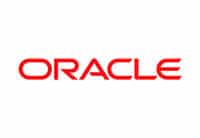The Java SE: Exploiting Modularity and Other New Features introduces the Java module system and other new features, including JShell, convenience methods, new techniques for working with streams, and managing deprecated APIs. These features were introduced in versions after Java 8, and therefore new to developers migrating to Java 11.
Learn To:
Design applications to take advantage of the module system and its more reliable configuration, improved security and performance, and more easily scalable applications. Migrate existing applications to a modular applications in a step-by-step manner, choosing which parts of the application to migrate first. Deal with common problems encountered in migrating an application, including, cyclic dependencies and split packages. Use services to make modularized applications more robust and easily extensible. Create multi-release JAR files that can be run on different Java releases. Use convenience methods to reduce code that seems verbose, inefficient or boilerplate, and increase readability. Use JShell to quickly run small code experiments and test new APIs.
Benefits To You:
By enrolling in this course, you’ll learn how to use the module system to design applications with explicit dependencies and encapsulation at the JAR level, ensuring more reliable configuration, improved security and enhanced performance. You’ll also get a chance to experiment with new features that ease development. These include convenience methods that make your code more readable and succinct, and JShell, an easy way to test code snippets and APIs.





